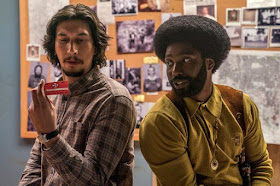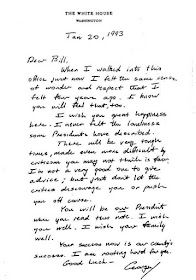Last Friday Questions till Christmas. Don’t wait until the last minute to read them.
Steve Jay gets us started:
How important is it to have a “Hawkeye versus Frank Burns” dynamic in a sitcom?
Having an antagonist like Frank Burns is certainly an element that works for most sitcoms and gives you conflict, but it’s not altogether necessary. In fact, I’d say most successful sitcoms don’t have that dynamic. From CHEERS to FRASIER to FRIENDS, having characters that all basically like each other creates kind of a “family” that audiences find appealing.
On the other hand, if you have a great antagonist like Louie on TAXI or Newman on SEINFELD you can get a lot of comic mileage out of it. The “Newman” character in particular is interesting because it almost feels like the series was doing a spoof on antagonistic relationships.
Boomska316 asks:
Are cast photos as awkward and forced as they appear? I don't think I've ever seen one that looked natural?
Usually they’re taken at the very end of a long shooting day or night when the cast is all there and in costume. But they want to go home.
They’re forced to stand around while lights are adjusted, the photographer shifts them around, etc.
So if smiles are somewhat forced that’s usually why.
And of course, in some cases, you might have cast members who dislike each other and avoid each other when possible. Yet, here they are, side by side, grinning through clenched teeth.
From YEKIMI:
I see that ABC has ordered additional episodes of "Black-ish", "The Goldbergs", "The Kids Are Alright" & "Single Parents". How hard is it for writers/producers/etc. to come up with these additional episodes? Are there scripts sitting around that they didn't get to or in the pipeline for the next season that they just move up? And if everybody's has basically wrapped production for a season and has spread to the four corners of the earth how big a pain in the ass is it to get them back together or are there episodes in the can just in case the network suddenly decided they needed more shows?
Generally you have a pretty good idea whether the network wants to order additional episodes. And sometimes they’ll pay for additional scripts just in case.
Scripts are rarely just available in the pipeline. Often you’re budgeted for one or two additional scripts but that’s so you can kill scripts that for whatever reason you just don’t want to go forward with.
But yes, you get to the end of the season and you salivate over that finish line, and when suddenly it’s pushed back it can be a real emotional letdown.
It’s like a pitcher thinks he’s coming out of a game after his team bats only to learn that he’s being sent back out there. The air has been let out of the emotional balloon and now you have to get it back. Ask Boston Red Sox fans and Pedro Martinez about this.
However, it networks order early enough and you’re mentally prepared for it, the additional episodes are not much of a burden. And remember, everybody gets more paychecks.
On MASH though we had this particular situation: The original order would be for 22 episodes. They would increase it to 24 with about a month to go. We anticipated that and were fine. Then, with a week to go they’d order a 25th episode. We would really have to scramble. Usually, David Isaacs and I would write the script over the weekend.
The next year when the network ordered the 23rd and 24th episode we said, what about the 25th? They assured us they would not order any beyond 24. You know what's coming.
A week before we wrapped they ordered the 25th. If you ever see the episode “
Night at Rosie’s” – David and I wrote that over the weekend and it started filming on Tuesday.
And finally, from Smitty:
I saw an interview recently where Ted Danson thought -- at the time -- that he was terrible as Sam Malone on the first season of Cheers. Because Ted is nothing like Sam in real life, he felt like he came off as a phony. When you were there during that first season, did you witness him having doubts about his performance?
I was there that first season. On the set every day, watched every runthrough and every filming. I remember Ted asking the director, Jim Burrows, a lot of questions on his way to really nailing down the character. But he did not seem uneasy.
And here’s my opinion:
Ted was never better than that first year. It may have been a struggle for him, and he would probably disagree, but Sam Malone was never smarter, more at ease, and interesting than he was that first season.
But then I’m partial to that first season. I would put the first year of CHEERS up against the best year of any sitcom. And most of the credit for that goes to the cast, Jimmy, and the Charles Brothers.
What’s your Friday Question? Leave it in the comment section. Thanks.
 Avoid the incredibly tasty fried chicken wings at the Hamburger Hamlet.
Avoid the incredibly tasty fried chicken wings at the Hamburger Hamlet. 




















